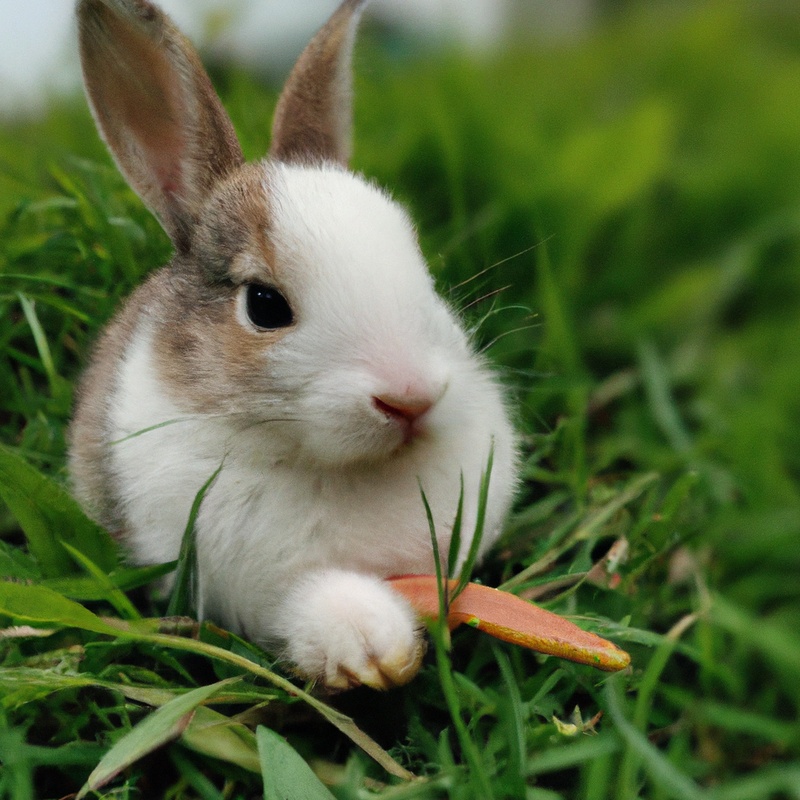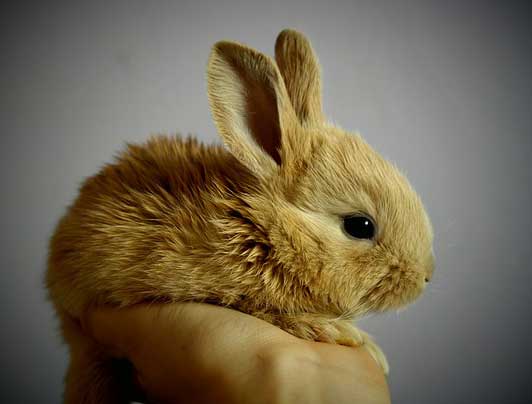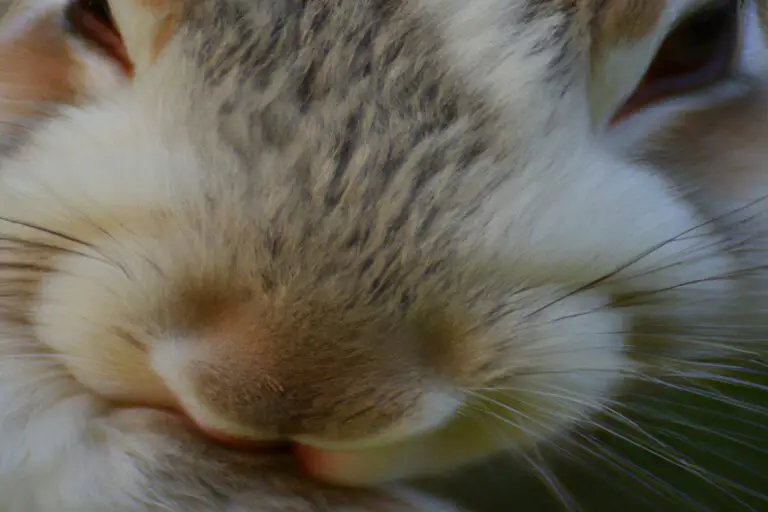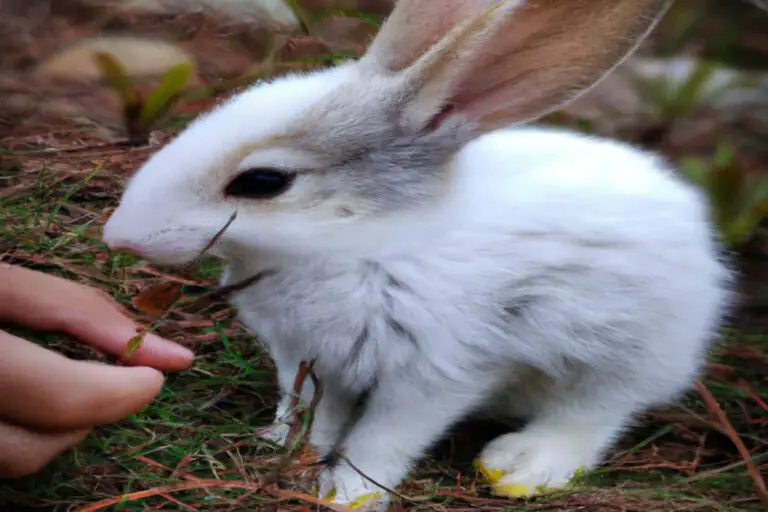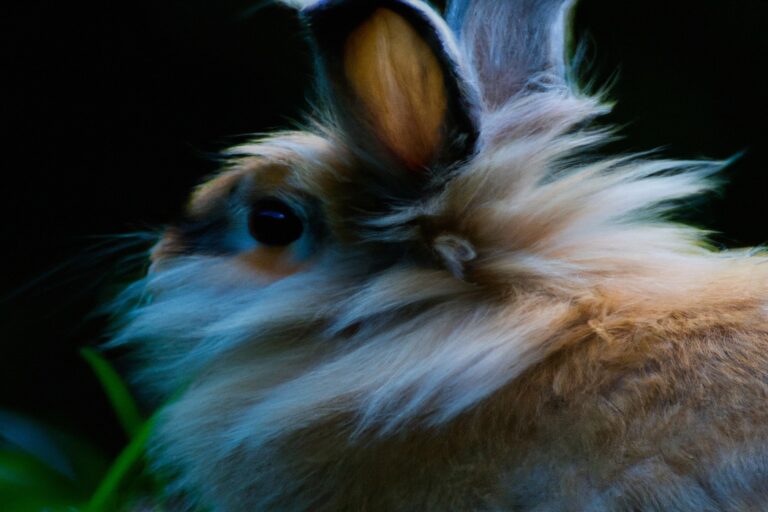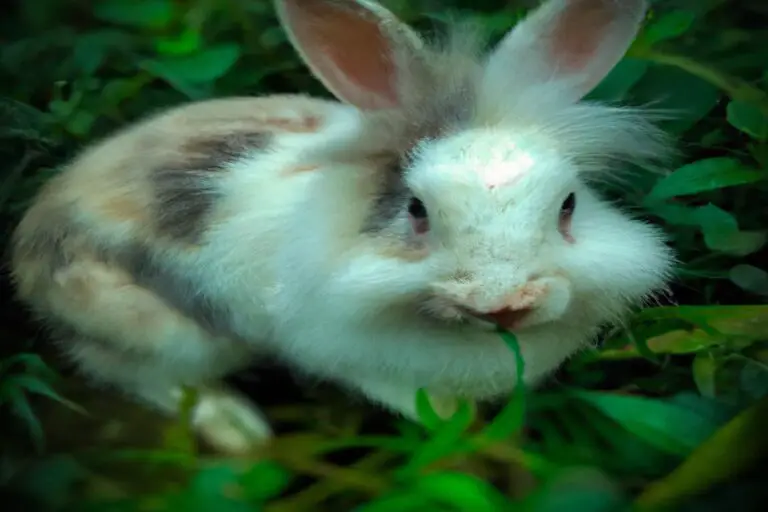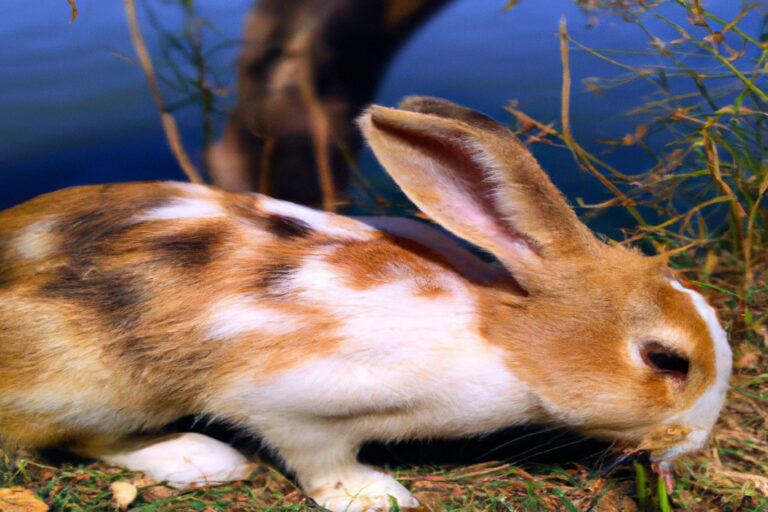Do Rabbits Have a Good Sense Of Smell? Sniff Out the Truth!
Key Takeaways:
- Rabbits have a remarkable sense of smell, which helps them locate food, detect predators, and communicate with other rabbits.
- Their sense of smell is much stronger than their sense of sight, making it a crucial sense for their survival.
- Rabbits can detect odors from a distance and have the ability to identify specific scents, such as the scent of their offspring or familiar individuals.
- Their sense of smell is highly sensitive and plays a significant role in their daily activities and interactions with the environment.
Are you curious about just how powerful a rabbit’s sniffer really is? Well, you’re in luck! In this article, we’re diving into the fascinating world of a rabbit’s sense of smell.
Get ready to uncover the secrets behind their exceptional olfactory abilities and learn how they use their noses to navigate their environment.
We’ll explore the anatomy of a rabbit’s nose, compare their sense of smell to other animals, and discover the various ways rabbits utilize their sniffing prowess in the wild. So, let’s hop right in and explore the wondrous world of rabbits and their sense of smell!
| Aspect | Rabbits |
|---|---|
| Smell Sense | Excellent |
| Number of Olfactory Receptors | 100 million |
| Relative Smell Sensitivity | More sensitive than dogs |
| Ability to Detect Predators | Highly skilled |
| Use of Smell to Communicate | Yes |
| Ability to Find Food | Extraordinary |
The Sense of Smell in Rabbits
Rabbits have a highly developed sense of smell, which is crucial for their survival and communication. They rely on their sense of smell to navigate their surroundings, locate food, and detect predators.
Anatomy of a rabbit’s nose
A rabbit’s nose is an amazing organ that plays a vital role in their survival. The anatomy of a rabbit’s nose consists of two long nasal passages that have a specialized structure called turbinates.
These turbinates help to increase the surface area inside the nose, allowing rabbits to have an exceptional sense of smell.
Additionally, rabbits have a highly developed vomeronasal organ located in the roof of their mouth, which helps them detect pheromones and chemical signals in their environment. Overall, a rabbit’s nose is a remarkable adaptation that allows them to navigate their world and identify potential threats or sources of food.
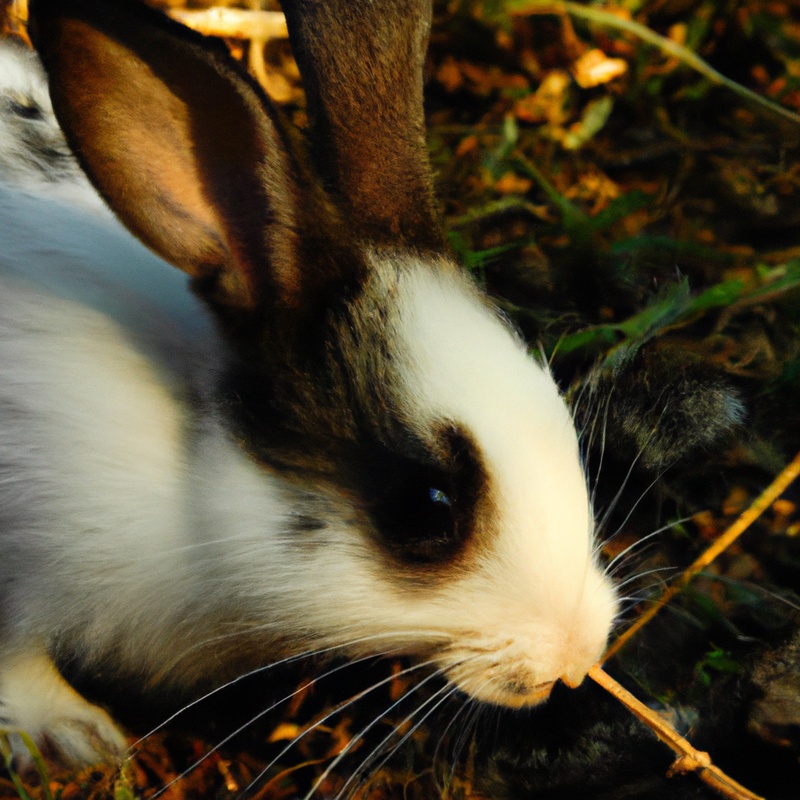
How rabbits use their sense of smell in the wild
Rabbits use their sense of smell in the wild for several important reasons.
Firstly, they rely on their keen sense of smell to find food.
They can detect the scent of fresh vegetation and locate tasty plants to eat.
This helps them survive in their natural habitat.
Secondly, rabbits use their sense of smell to detect predators.
They can pick up the scent of approaching predators and quickly flee to safety.
This helps them avoid becoming prey and stay out of harm’s way.
Thirdly, rabbits also use their sense of smell for communication.
They have scent glands located around their body, especially on their chin and under their tail.
They use these glands to leave behind scent markings, indicating their territory or marking their presence to other rabbits.
Rabbits’ Olfactory Abilities
Rabbits have an excellent sense of smell, which is comparable to many other animals.
A rabbit’s keen sense of smell is due to a combination of factors such as their large nasal passages and sensory receptors.
Comparison of a rabbit’s sense of smell to other animals
Rabbits have an exceptional sense of smell that rivals many other animals. In fact, their olfactory abilities are among the best in the animal kingdom.
Their noses are equipped with millions of scent receptors, allowing them to detect even the faintest odors in their surroundings.
This keen sense of smell helps them locate food, identify predators, and communicate with other rabbits. Compared to other animals, rabbits’ sense of smell is highly developed and plays a crucial role in their daily lives.
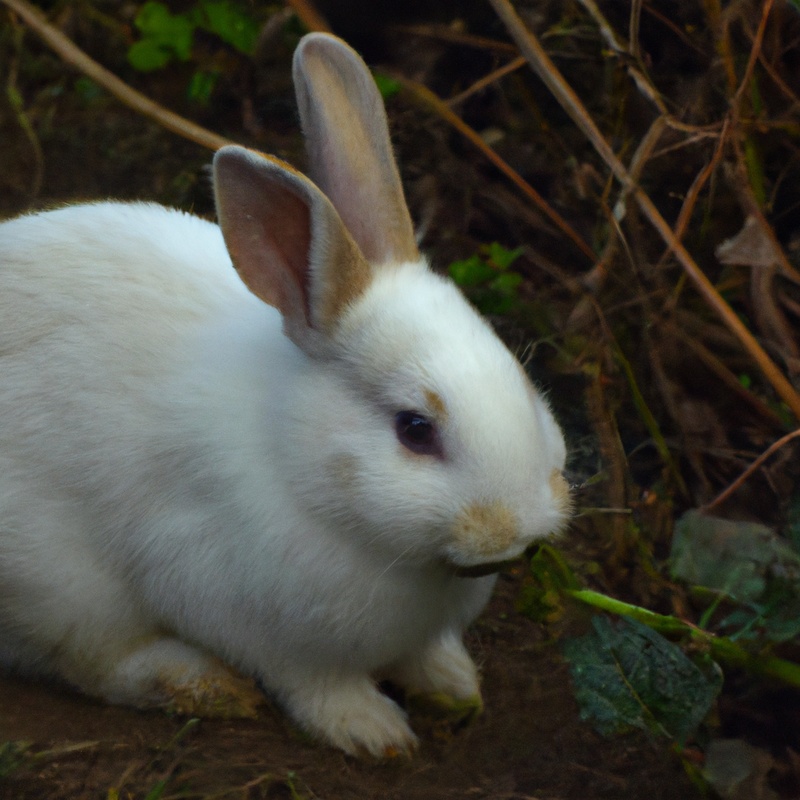
Factors that contribute to a rabbit’s keen sense of smell
A rabbit’s keen sense of smell is influenced by several factors.
Firstly, rabbits have a large number of olfactory receptors, which allows them to detect scents more effectively.
Secondly, their long and sensitive noses help them pick up even the faintest of smells.
Additionally, rabbits have a well-developed vomeronasal organ, which enhances their ability to detect pheromones and chemical signals in their environment.
These factors combined contribute to the impressive olfactory abilities of rabbits.
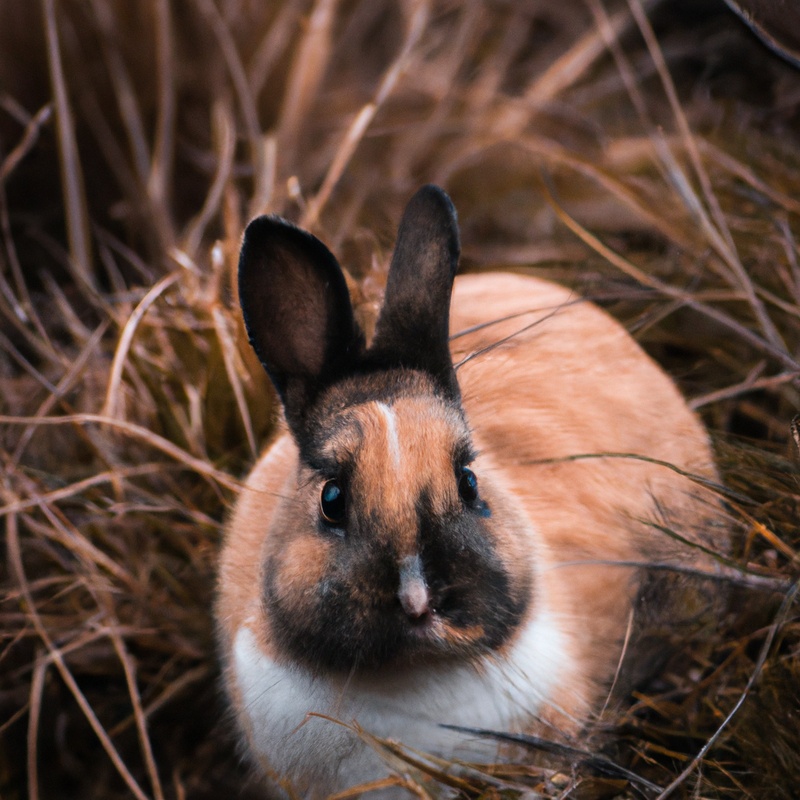
How Rabbits Use Their Sense of Smell
Rabbits use their sense of smell to find food, avoid predators, and communicate with other rabbits.
Finding food
Finding food is an important skill for rabbits and they rely heavily on their sense of smell to locate it.
Their acute sense of smell allows them to detect food sources from a distance, even when they are well hidden.
Rabbits have a preference for fresh and tender vegetation, so they are constantly on the lookout for new sources of food.
They use their sense of smell to distinguish between different types of plants and to find the most nutritious and delicious options available.
So, with their keen sense of smell, rabbits are able to navigate their environment and find the food they need to survive and thrive.
Avoiding predators
Rabbits have developed several ways to avoid predators and stay safe in their environment.
One method is their keen sense of smell, which allows them to detect predators from a distance.
They can pick up the scent of potential threats, such as foxes or hawks, and quickly flee to safety.
Rabbits also rely on their agility and speed to escape predators.
They have powerful hind legs that enable them to make quick turns and sudden bursts of speed, making it difficult for predators to catch them.
Additionally, rabbits will often hide in burrows or dense vegetation to avoid being seen by predators.
These strategies help rabbits stay one step ahead of their natural enemies and increase their chances of survival in the wild.
Communicating with other rabbits
Rabbits communicate with each other using various methods. They use body language, such as thumping their hind legs or wagging their tails, to signal danger or alert others.
Rabbits also communicate through vocalizations, like grunting or squealing.
They may even use scent marking to communicate their territory or identify each other. Additionally, rabbits rely on nonverbal cues and behaviors to establish social hierarchies and show affection.
Their communication methods are diverse and play a vital role in their social interactions.
Training and Utilizing a Rabbit’s Sense of Smell
Rabbits can be trained to use their sense of smell for specific tasks, making them excellent detectors or searchers.
Some scent-related activities for rabbits include scent discrimination, scent tracking, and scent-based food searching.
Training rabbits to use their sense of smell for specific tasks
Training rabbits to use their sense of smell for specific tasks is a valuable skill.
Through positive reinforcement, you can teach rabbits to locate objects or substances using their keen sense of smell.
Start by associating a specific scent or odor with a reward, such as a treat.
Gradually increase the difficulty by hiding the scented object in various locations.
With patience and consistent training, rabbits can become proficient in using their sense of smell for tasks like finding hidden items or even detecting certain scents in a controlled environment.
Examples of scent-related activities for rabbits
Rabbits love scent-related activities! Here are some examples you can try with your furry friend:
- Hide and Seek: Hide treats or favorite toys around the house or in an enclosed outdoor area. This will engage their sense of smell as they search for the hidden treasures.
- Scent Trails: Create a scent trail by dabbing a treat or a piece of fruit on different surfaces, leading your rabbit to a rewarding treat at the end. They’ll enjoy following the trail and using their nose to find the prize.
- Foraging Toys: Invest in foraging toys that require your rabbit to sniff out the treats hidden inside. These toys help stimulate their sense of smell and provide mental enrichment.
- Herb Gardens: Grow a small herb garden with rabbit-safe herbs like parsley, mint, or basil. The strong scents will entice your rabbit, and they’ll enjoy nibbling on the fresh greens.
Remember, rabbits have a keen sense of smell, so incorporating scent-related activities into their routine can provide both mental and physical enrichment.
Have fun exploring these activities with your furry companion!
Frequently Asked Questions about Rabbit’s Sense of Smell
How far can a rabbit smell?
Rabbits have an exceptional sense of smell and can detect scents from up to 2 miles away. Their strong sense of smell helps them identify predators, find food, and locate mates.
With their keen noses, rabbits can locate food sources and detect danger in their environment, allowing them to stay safe and thrive in the wild.
Their acute sense of smell is truly remarkable!
Can rabbits detect certain scents better than others?
Rabbits have an excellent sense of smell. They can detect certain scents better than others due to their ability to pick up on specific odors.
For example, rabbits have a heightened sense of smell when it comes to predators.
They can detect the scent of a predator from a distance and quickly respond to ensure their safety. Additionally, rabbits have a keen sense of smell when it comes to finding food.
They can sniff out fresh greens or vegetables, even in small quantities.
Their sense of smell is a vital tool for their survival in the wild.
Are there any health issues related to a rabbit’s sense of smell?
There can be health issues related to a rabbit’s sense of smell. One common issue is respiratory problems, as rabbits are prone to respiratory infections and allergies.
These conditions can affect their sense of smell and overall well-being.
Another potential issue is dental problems, which can lead to mouth infections and a decreased sense of smell. It’s important to monitor your rabbit’s health and seek veterinary care if you notice any changes in their sense of smell or overall behavior.
Final Verdict
Rabbits indeed possess a remarkable sense of smell, relying on it as a crucial survival tool in the wild. With their specialized anatomy and sensitive olfactory receptors, rabbits have the ability to detect scents at great distances and distinguish a wide range of odors.
They utilize this sense to locate food, avoid predators, and communicate with other rabbits.
Furthermore, rabbits can be trained to channel their exceptional sense of smell for specific tasks and engage in scent-related activities. Understanding and harnessing a rabbit’s sense of smell can enhance their overall well-being and provide enrichment opportunities.

